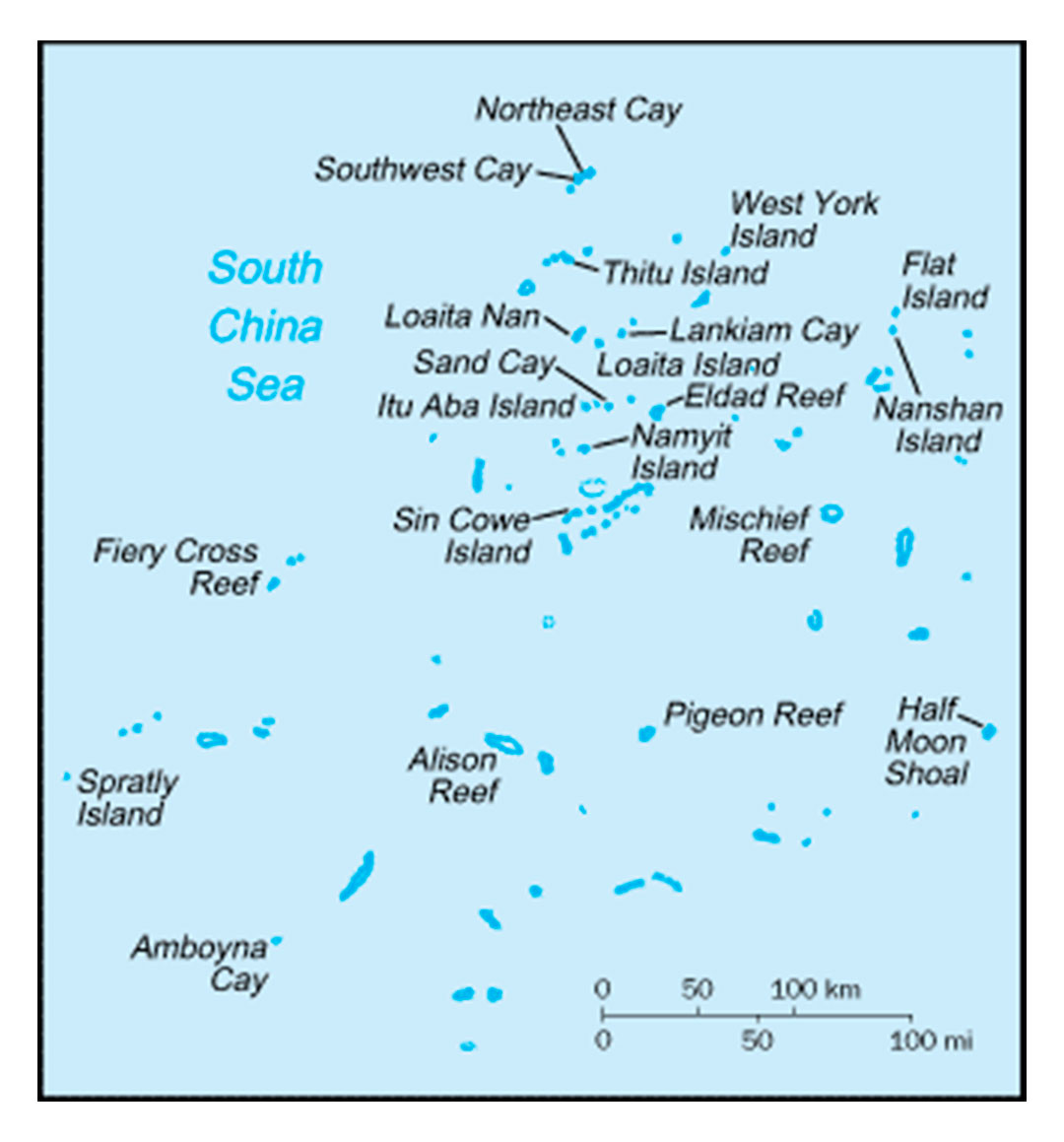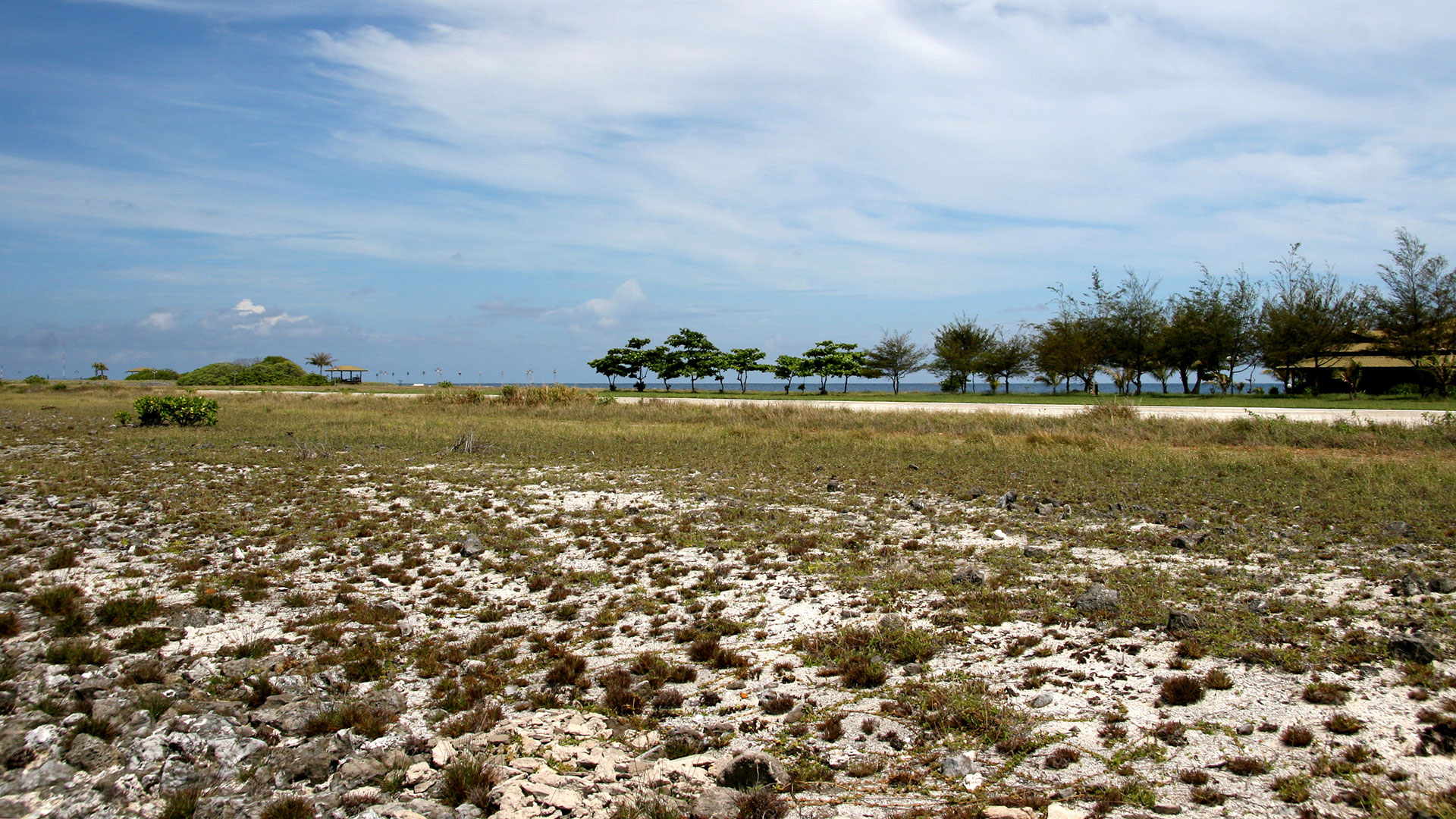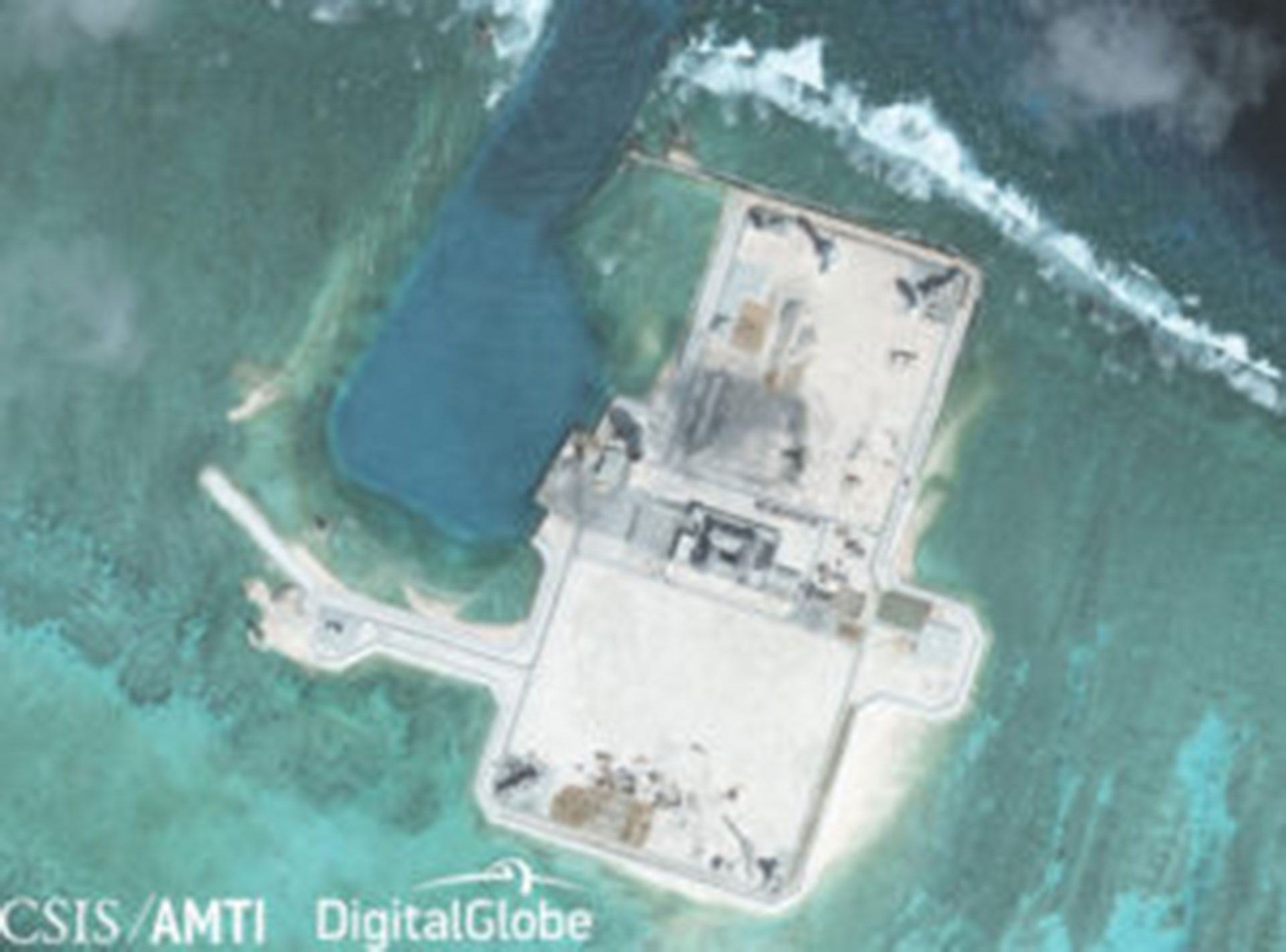
This is the most disputed place in the world. Few people know about it, but at least seven countries (and some others try to get into the discussion) are vying for their sovereignty. They are islands, islets, reefs, cays, atolls, hundreds of sandbanks and even artificial islands. Almost uninhabited, they generate enormous tension in the South China Sea. In the Spratly Islands, diplomatic chess plays out, which for the time being seems too intricate and with no end in sight. Occupations, formal claims, revived, the installation of communities, deployment of troops, the sinking of ships and even the construction of a missile base are some of the tactics that countries use to appropriate them. A little-known place but with enormous potential conflict.
The archipelago is one of the few places on the planet where there is no clear attribution of nationality and where everyone feels authorized to claim their dominion. All kinds of antecedents and arguments have been upheld by the parties over the last few decades to justify their claim. From imperial occupation to the nationality of those who inhabit them to the extension in time of peaceful occupation.
They are islands lost in the middle of the sea, with a small population, almost without constructions, difficult to conquer by man, with difficult access. Almost no territory: the archipelago covers an area of about 410,000 square kilometers, but of which only 5 of those square kilometers are land. Their location caused many to pay attention to them: much of the world's commercial traffic passes through the area. In recent years, that interest has multiplied almost exponentially. It is not a question of wounded national pride, nor is it a renewed geopolitical concern. It just happened that greed came into play. It is believed that the archipelago can be a large reserve of oil and gas and various valuable minerals, beyond its fishing capacity. Some of these reserves of hydrocarbons assume them to be colossal; others say that they are not worth it, that extraction under these conditions is almost impossible.
The governments of the countries involved prefer not to take risks and claim their possessions.
The Philippines, Malaysia, the Sultanate of Brunei, Vietnam, China and Taiwan are the countries that dispute the archipelago. Some claim for themselves the entire surface, each island, every atoll, every small islet; others, more humble, demand only that sovereignty over some of the islands be recognized.
Everything is so much discussed that they do not even agree on the way to name the place. Each country uses its own language and its peculiar name. In the West they are known as the Spratly Islands, the surname of the English sailor who made them known in this part of the world. But that was in 1843, a time that lasted well into the middle of the 20th century, when those small islands and inhospitable islets were of no interest to anyone. If someone had said that multiple nations would claim them for themselves, he would have been taken for a madman. The colonial powers never cared about them. France planted its flag, almost out of commitment, in the 1930s for its colony in Indochina. Japan at the beginning of the Second War evicted them. With the Gallic flight from Vietnam and the Japanese defeat, it could be said that they became vacant. And no candidates among the powers to take over since the Americans had left the Philippines and the British had left Malaysia. The territory was left with no one to dominate it. That made it attractive to neighboring Asian countries that could claim rights by proximity.

The history of these islands is told in a magnificent way, like so many others, by Olivier Marchon in his book Geographic Oddities (Godot Editions). Marchon writes: “If we look at the current map of the archipelago with the respective possessions, it looks like the board of a giant strategy game, in which each player would have placed their pieces, and in which each stone, even the smallest, and every beach, even the smallest, would be a square.” A huge but very real TEG. In which the most powerful army gains more and more positions through force and its power of coercion through armaments and its maritime movements. China does not attack Kamchatka but Vietnam, the Philippines and others involved.
China has created fortresses with great offensive capabilities on very small reefs. Cannons, anti-aircraft batteries, bunkers and radars. A couple of years ago he also set up a missile launch base. The episode was denounced by the American press and confirmed, without blushing, by the Chinese authorities. Its carriers patrol the area and during the 1980s it has sunk ships of other nations, citing confusion and alleged hostile acts. Chinese dominance in the area has caused Malaysia, the Philippines and Vietnam to demand US assistance.
But it's not the only case. The other countries also have their troops and each one managed to build an airstrip on one of their islands. For example, Taiwan made a 1.2 kilometer extension on the island of Taiping, which is 1.4 kilometers long. That is, except 200 meters everything else on the island is the track.
The UN declared the archipelago a Hot Zone: countries' expectations, their pretensions, pressures, that no one gives in, increasing incidents and the progressive militarization of the place make it a place where the danger of war is unleashed at any time. In addition, there are too many countries with overlapping pretensions for all to be satisfied with a diplomatic negotiation.
If China uses its economic and war power to try to prevail, others appeal to other weapons (or tricks). The most imaginative episode must be attributed, without the slightest doubt, to the Vietnamese. The Zona Caliente thing has nothing to do with the incident in which Pugad's fate was decided. In difficult times, the enemy seizes every opportunity. It has already been said that not much happens in the Spratly. In 1975, the lethargic Filipinos waiting for nothing on the islet of Pugad felt a special emotion. They waited anxiously for the day. It promised to be the party of the year. On the neighbouring island of Parola they had opened a new bar. There were games, pool tables, alcohol and women. That evening almost all the men of Pugad embarked there. They would have the party of the year, they would celebrate the birthday of the head of their base. Those of Parola surprised with their hospitality. Everything was better than expected. Various delicacies, free rounds of alcohol, women who fell to their seductive gifts. The Filipinos were exultant. By midnight the birthday had already turned into an orgy. It was a great night. But the next morning was very hard. Not only because of the headache and the dryness. The South Vietnamese had not only been extraordinary hosts. They had also taken advantage of the fact that everyone from Pugad had gone to their birthday to invade and take over the island. Now the island belonged (and still does) to South Vietnam. The Filipinos were shipped to their country. It is not known how the authorities of your country received them. Although they were supposed to have been publicly humiliated, some of the Filipino soldiers had such a good time that night after so many months of procrastination and deprivation that they considered it a sweet defeat.

The question of sovereignty is very intricate and in demand. Brunei claims part of the China Sea and occupied some reefs without making a formal presentation; the sultanate was the last to arrive on the site and tries to take advantage of the confusion. China, Taiwan and Vietnam claimed the entire archipelago for themselves. The last two have built bases, carried (a few) civilians and erected small fortifications to protect the land and sea that surrounds them. Vietnam is the one with the most islands and formations under its flag. China has a millennial history, talks about occupations from centuries ago and demands that others leave the place. In the meantime he threatens to get them out of there.
For China, the Spratly are essential. The exclusive economic zone of that country is monstrously extensive. And this archipelago is a fundamental part of their plan for regional domination. One of the vertices of the Nine Point Line with which it encloses its intended exclusion zone.
On the islands of Spratly, a confrontation similar to that of the Cold War took place. Preventive armament, some demands to international forums, unearned occupations and a lot of tension in a scenario where no one wants to give their arm to twist. Everyone talks about sovereignty but what they don't want to lose is the potential riches that the place would hide. At the moment it is quite difficult (and boring) to live in those minimal expanses of land and sand lost in the sea. But many are confident that fortunes can be made there.

As if all this were not enough, there was no shortage of rogues or dreamers who rode their micronations on one of the islands. Those states emerged from private wills, somewhat arbitrary, somewhat faresque too, that they boldly create in the face of legislative loopholes or factual opportunities. But the Spratly is not the territory to play. The first one who created a kingdom there and was named with all pomp monarch of the place, left his kingdom running as soon as the Japanese invasion came and never returned. The others who wanted to settle were short-lived due to the high possibility of combustion in the area.
The international legal instrument that should settle this dispute is not too old. The 1982 UN Treaty on the Rights of the Sea, instead of providing solutions, produces the paradox of only making national positions increasingly uncompromising. This is because each country interprets the norms according to its convenience and squeezes and stretches the clauses of the treaty so that they end up saying, under their interpretation, what is in their favor.
The Spratly Islands, with its scarce habitable land, with increasing numbers of troops, with weapons proliferating, with its potential for the exploitation of hydrocarbons, with its transcendental geopolitical location, are an almost unknown area of the map and a source of tension in an increasingly sensitive world. They are also a great generator of stories.
KEEP READING:
Últimas Noticias
Debanhi Escobar: they secured the motel where she was found lifeless in a cistern
Members of the Specialized Prosecutor's Office in Nuevo León secured the Nueva Castilla Motel as part of the investigations into the case

The oldest person in the world died at the age of 119
Kane Tanaka lived in Japan. She was born six months earlier than George Orwell, the same year that the Wright brothers first flew, and Marie Curie became the first woman to win a Nobel Prize

Macabre find in CDMX: they left a body bagged and tied in a taxi
The body was left in the back seats of the car. It was covered with black bags and tied with industrial tape
The eagles of America will face Manchester City in a duel of legends. Here are the details
The top Mexican football champion will play a match with Pep Guardiola's squad in the Lone Star Cup

Why is it good to bring dogs out to know the world when they are puppies
A so-called protection against the spread of diseases threatens the integral development of dogs



